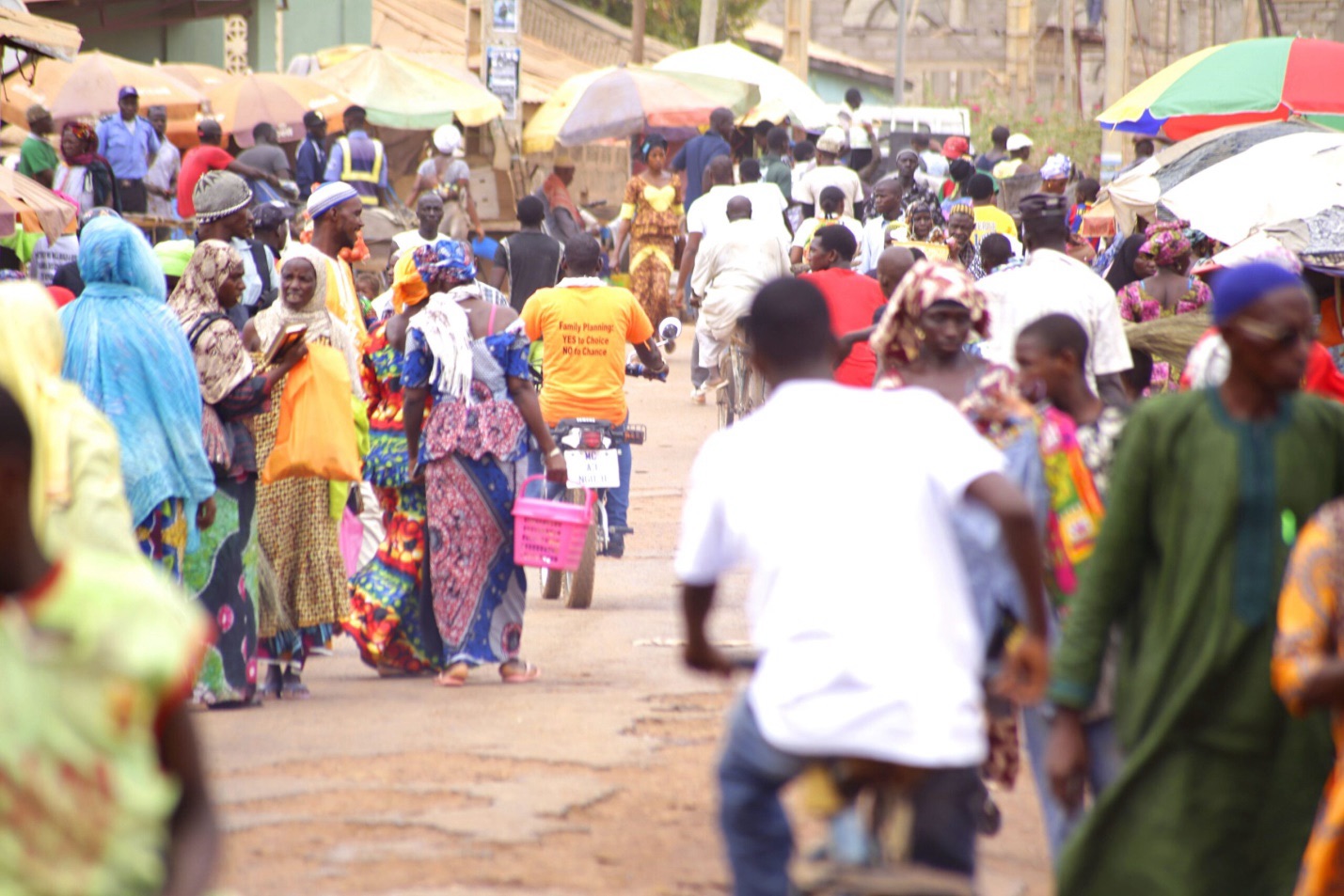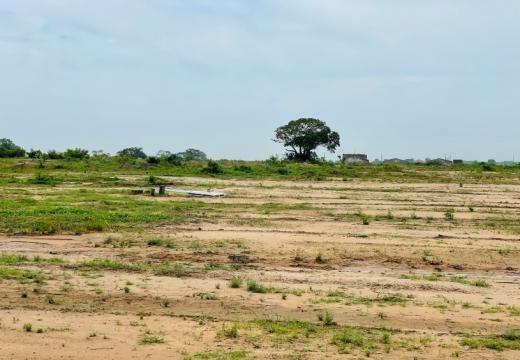
I had the opportunity to participate in the Gambia Population and Housing Census (2024) conducted by the Gambia Bureau of Statistics. This data collection exercise is carried out once every decade. The exercise involves recruiting and training thousands of would-be data collectors on interview techniques and digital data collection for the first time in the country. So it is a big deal. The exercise is meant to gauge the country’s population covering a wide scope of thematic areas like housing conditions, health, sanitation, employment, and migration.
The result helps us understand our demographic factors and key indicators like our competitive advantage, challenges, and progress over this period. So in short, the data collected is a prerequisite to effective policy formulation by basing policies on facts. GBoS also spearheads many other statistical surveys to keep policymakers and development partners up to date with key developments in crucial sectors of the demography. This is at least what I learned in 12 training days before embarking on fieldwork.
I have not had many opportunities to directly serve in national exercises, be it elections or census. This is mainly due to the nature of my job and sometimes lack of knowhow on the recruitment process. However, this was a chance to balance the scale. Of course, there was a fair attractive incentive and it was an obvious opportunity to fix some financial holes with the “tobaski” at the corner. So I thought no brainer! This is exemplified in the 20,000 applications GBoS is said to have received from Gambians expressing interest. But only about 7000 were recruited for the task ahead. I was one of them. I was not honestly sure what to expect besides that most of the task was fieldwork, which I thought was my A game(oh at least I thought). The job mainly involves interviewing the population (citizens/noncitizens) with uniform questionnaires. In my opinion, this was no game for the shy or introvert. Besides, I have to confess, having experienced it firsthand, It is important to understand that the process of data collection is more complex than it may appear, regardless of the underlying motives. I would say it requires some grit, aptitude, and flexibility to get anybody to share their personal life. Information about their employment, health, and marital status among other details are deemed private. Even our dearest folks may be skeptical when we probe this deeply. Many people were skeptical about our mission, especially in the early days. Even more so in a digital world where anybody can manipulate your information with a click away.
To make matters worse, this was the first ever digital enumeration in the Gambia. This coupled with the routine skepticism were major hindrances in the early days but I have learned to navigate around on the job. On many occasions, respondents will enquire whether some form of financial grant or provision will be accorded to them for cooperating. Although this is not how the census works, it exposes the sheer unawareness of this exercise and justifies these questions. Some household members reiterate the series of surveys they have had to participate in but have not realized any concrete benefits. This leaves me explaining the scope of the census. I found myself many times separating grains from shafts. I have learned from a colleague that there exists a project in the name of a social registry survey that caters to the most needy households in the country. The survey looks at the most vulnerable and needy population by filtering the data collected. The project then injects direct cash aid to the beneficiaries to address poverty in the long run and cater to their needs independently. Unfortunately, not all households can be catered for in this case. This is an ongoing
However, as I progressed in the job, I became more familiar with the neighborhoods, which helped in building a rapport with the community. Wearing casual clothes with the GBoSidentification tag made it easier to connect with people. Perhaps this was a good shuffle to quell the anxiety that fills the air when I am in full gear. Now I can appear as the everyday Gambian that I am. I continued explaining the overarching importance of this exercise citing how it can better the present and future of our children. I must contend the publicity campaign of the census did not quite get it on this occasion. The lack of awareness was staggering.
Despite the lack of awareness about the census, it provided me with valuable insight into the living conditions and social/economic realities impacting Gambian families. Navigating through sensitive questions was a challenge, and I had to ensure that I approached them with empathy and respect. I had to devise a way to put some sensitive questions across at least to not sound inconsiderate. I felt it was my duty to let them know that I could truly relate to their struggle as a Gambian. Of course, we were informed in training that such scenarios may come up. There may be sensitive topics such as marital status, health, employment, maternal mortality, etc., that could trigger strong reactions. Not that these people are not polite, in fact on the contrary, I’ve always bragged with my supervisor and colleagues that I got the best EA (Enumerator Area) and I know my Jola son can attest to that. I have met wonderful people who continue to define us as a smiling coast despite the many challenges today. Even the few challenges I encountered quickly became a thing of the past after a couple of interactions. The people’s hospitality has been exceptional, and I now feel like a legitimate member of the community. I have also found my favorite breakfast spot at the canteen across the highway. Gambia Nice!
However, my questions revolve around grey areas that trigger the emotional state of a good aggregate of Gambians today. The socio economic pressure arising from the high cost of living becomes a lingering nightmare for many. One that has consumed our smile away, leaving us shocked by recent price hikes of basic commodities. They are not prepared for such conversations at all let alone from me, an agent of the system, at least in their initial views. I have learnt that after all, I am not any different. That we are in the same boat. All taxpayers are victims of the terrible economic policies we are witnessing. Having learned a thing or two got me even more concerned. I was always eager to start the next day. The revelations not only resonate with me but have gone on to highlight our shared struggles to make ends meet in our time. When interviews seem to be derailing, I have often used humor, especially in customary joking relationships. Other times I shared resources such as job listings and skill work contacts to help those in need and sometimes I just offered a listening ear. This approach has been effective in building rapport with household members and individuals. This was a very healthy way of getting by.
This transition was key in successfully gathering data from about 500 household members within 3 weeks. I confidently continue to deliberate on the significance of the census exercise like quoting a verse from the Quran for reverts. This data will help in understanding the employment gap and devise ways to bridge it. That this data will help improve the education of their children, and housing conditions, and possibly address the cost of living in the long run. I have often been clapbacked with a series of challenges making life unbearable. The high cost of food, energy, poor wages, cost of rent, and lack of jobs among others. This has suffocated whatever hope they had left for change. The issue of bread and butter is at the very heart of their discourse and rightly so. Who else to better put it to than me, at least in their view I can offer some answers to these burning issues. The fact is, they would be surprised to realize I am familiar with these issues and have been seeking answers myself.
I have also observed the harsh reality of a high dependency rate among households which is alarming, to say the least. According to the 2013 population census, the household size stands at 8.3, which overshadows the basic income by miles. In most instances, there is a single breadwinner providing for the rest of the family. The weight of such pressure causes a deficit in the basic needs of some family members. In my humble view, it is one of the leading causes of poverty. I may not be an economist myself, but it is an implausible math trying to squeeze in the shelter, feeding, clothing, and miscellaneous provisions for 8 people with a single monthly salary. Even an average monthly take-home of D10,000 cannot cater to a family of four (4). It is the reality we live in today. The price of basic goods and services is not commensurate with the current earnings of Gambians whether private or public domain. This leaves many people involved in financial corruption to make ends meet although this is not an excuse but rather highlights the devastating impact of social and economic realities. It has equally contributed to the backway syndrome where frustrated youths risk it on the high waters for a better life. Besides, at the time of writing, the latest update from GBoS Statistician General has revealed 84% of households have been enumerated with a household size of 8.3 already equaling our previous record and poised to surpass it when we have the final report.
If these pressing issues does not inspirit government of the day to muster some guts and take action against this nightmare of an economy, then we are in for a rough ride until 2026. The tax hike on goods and services is crippling the population and businesses that should supposedly provide jobs to the citizens are closing down. I have firsthand witnessed several businesses closing down due to rising taxes, cost of operation, dwindling market among others. Surprisingly, this is a country that does not have any meaningful local-based industry to realize a balance of trade. We use hard currency to import the majority of goods and services, loans, and others which has heavily depreciated the Dalasis even against the CFA now. In a nutshell, we produce little or nothing, import heavily, and rely on tax for revenue generation. This has left us squeezed to the ribs. The population cannot continue to live on breadcrumbs while some few bureaucrats ponder on improving their allowances and benefits.
As the great Thomas Sankara said, we must choose either champagne for a few or safe drinking water for all. The economic disparities in the country are stretching by the day and better allocation of resources, price regulations and benefits should be a starting point to improve the living standards of taxpayers. This can be done by establishing or supporting existing businesses in the country with conducive economic policies that will stimulate employment creation.
Our representatives must prioritize this data by taking drastic measures against the dwindling economy, tax hikes, and employment gap.
However, this requires political will to serve the fundamental interest of the masses.
It is never too late!





